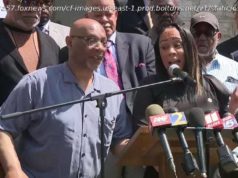On this week’s Beyond the Bubble podcast, election law guru Rick Hasen says gerrymandering decisions will empower states under single-party control to make much longer-lasting maps. Politifact’s Louis Jacobson unpacks June’s biggest lies.
Subscribe to McClatchy’s Beyond the Bubble show on iTunes here or Stitcher.
WASHINGTON — States controlled by one party may now be able to rig their election maps to favor one side long after they lose control the majority of voters, according to election law experts.
Rick Hasen, a law professor at the University of California, Irvine, told Beyond the Bubble that maps created by a single party could now even sustain some “wave elections,” thanks to campaign technology that’s made it easier to identify where a party’s voters live.
Partisan gerrymandering — a practice used by both parties to draw districts reflecting their political views— got a big nod of approval from the Supreme Court this month.
Justices ruled on cases challenging election maps in North Carolina, Texas and Wisconsin, declining to call any of them an unlawful use of power by state leaders.
“It’s now possible to draw a gerrymander that can last the entire decade,” said Hasen, author of Election Law Blog, on the court’s decisions.
( Check out last week’s Beyond the Bubble episode: The politics of family separation at the border)
Cases in North Carolina and Wisconsin alleged that the maps were drawn to benefit one political party over the other. The Texas case suggested voters were put into specific districts based on their race, with the intention of creating a small number of very Democrat-leaning districts.
“The court is making it very hard to win these cases, and the effect is going to be that minority voters are going to have much less protection than they had before,” said Hasen. “That of course has partisan consequences because we know, especially in the American South, that there’s a huge overlap between race and party.”
States defending the practice called the decisions a victory for states’ rights.
Hasen said states under a single party’s control that want to fight the process are turning to ballot initiatives — something Texas doesn’t allow— but that California and Arizona are exploring.
“There’s an initiative process where you can get around the legislature and impose reform… this is probably going to be on the ballot in Michigan,” said Hasen.
As for the courts, “Right now it looks like [they’re] going to duck the issue at least for the foreseeable future,” said Hasen. “At least until one of these cases makes itself back to the Supreme Court, and then, we don’t know if we’ll have the same justices on the court.”
McClatchy’s Beyond the Bubble show is produced by Jordan-Marie Smith and Davin Coburn. Alex Roarty, a national political correspondent for McClatchy, and Andrea Drusch, Washington correspondent for the Fort Worth Star-Telegram, recorded this episode at McClatchy’s Washington Bureau, June 26,2018.






